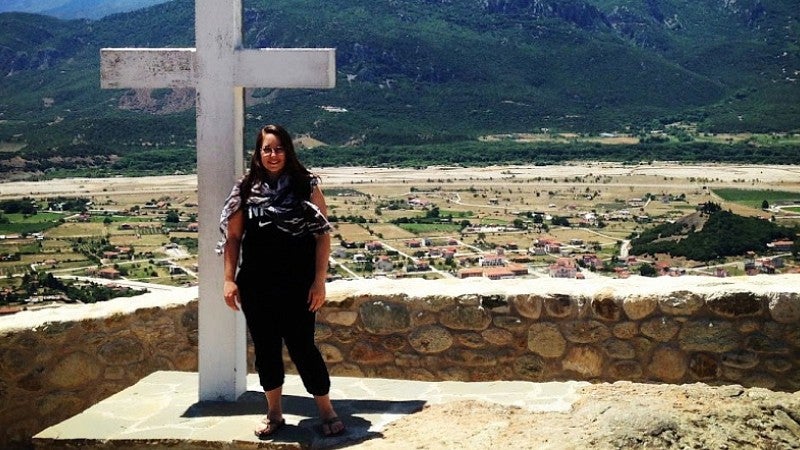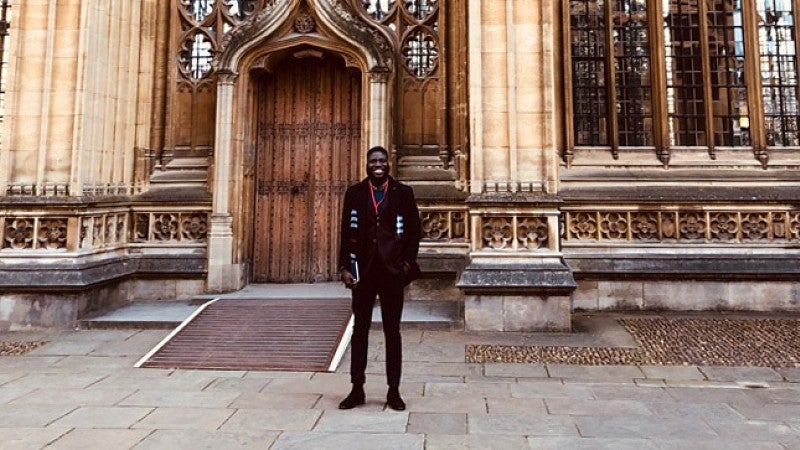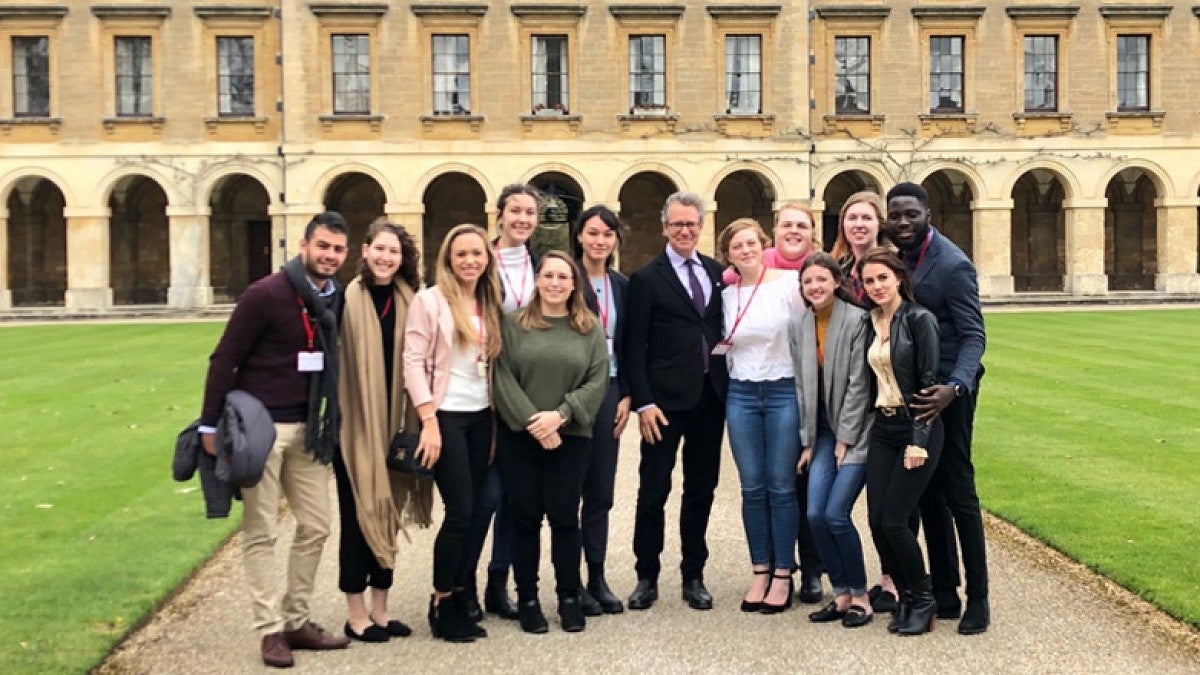Five UO law students recently crossed an ocean for the chance to do more than just talk about human rights; they dug in to help work on possible solutions.
The UO School of Law’s Raymund Fellows joined students from around the world and from a variety of backgrounds — including refugees, displaced persons and undocumented students — at the Oxford Consortium for Human Rights at Oxford University. They heard about the international challenges firsthand and then started working on possible answers.
During the week-long experience, School of Law students Casey Daggett, Morganne Ashley, Katarina Jaksic, Skyler Brocker-Knapp and Akinbosade Adedayo took on issues of human rights, violent conflict and the struggle for peace.
By understanding global challenges, the students returned home with a broader perspective of what effective, thoughtful and meaningful advocacy work looks like. Whether that means questioning the world around them or forgoing the status quo, they can position themselves to be allies and change-makers on the global stage.

Daggett attended her first consortium in Geneva and Greece following her first year in the law school's jurisprudence program in 2017. That year, the theme focused on global migration and refugees.
Daggett’s class spent a week in Geneva working on macro issues and spoke with numerous major international organizations, such as the United Nations High Commissioner for Refugees, the Convention on the Elimination of all Forms of Discrimination Against Women, and the International Committee of the Red Cross.
That first experience shaped her professional goal to advocate for human rights by encouraging businesses to adopt more ethical and sustainable business practices.
“This program is entirely the reason why I know what I want to do after law school,” Daggett said. “While we were working in refugee camps in northern Greece, I would often see donations from huge corporations or multinationals that, while well intended, were entirely useless for the situation at hand and did not meet the many needs of the refugee communities. As a result, I became interested in corporate social responsibility and have taken a mixture of both international law and business law courses, focused on international business and corporate law.”
In addition to helping define how she intends to practice law, the experience meant so much to Daggett that she returned four more times to the consortium as a student coordinator to help plan future workshops and prepare UO Clark Honors College and School of Law students for the experience.
“The consortium is an empowering experience for students to learn how to create a more equitable and just society through hard work, allyship and the courage to speak up when no one else will,” Daggat said.
After graduating this May, Daggett plans to continue her education in international business in the United Kingdom as part of a master of law program.

Adedayo, an international student in Oregon’s master of law program, saw the consortium as an opportunity to improve and build his human rights knowledge.
“I was driven to apply to the University of Oregon,” Adedayo said. “The consortium was part of my quest to find modes of ensuring enforcement of human right laws in countries where judicial process is rendered purely academic.”
Before coming to the School of Law, Adedayo practiced law for three years in Nigeria with a law firm that worked alongside nongovernmental organizations to help the country’s northern citizens displaced by the terrorist group Boko Haram. The group gained international attention in 2018 after kidnapping 109 girls from their boarding school.
While that incident made headlines, the group’s documented violations of human rights and international humanitarian laws are vast and indiscriminate. United Nations Human Rights has reported that it is guilty of a long list of crimes against humanity, including massacres, torture, mass abduction, child recruitment and “severe and widespread violations of the rights of women and girls, including sexual slavery, sexual violence, and forced so-called ‘marriages’ and pregnancy.”
The reality of the human rights violations is daunting, and Adedayo said he and his colleagues were often limited in what they could achieve. He points out that many African countries like Nigeria have either an absence of protective laws or a lack of enforcement measures.
He came to the UO to look for solutions, and through the consortium Adedayo said his perspective and attitude towards human rights principles changed immensely.
“I spent a week learning, discussing and arguing with the best at their fields on international human rights, humanitarianism, war doctrines, drone strikes and reconciliation,” Adedayo said. “Now, I feel a renewed strength to keep fighting not just for the victims of Boko Haram but for every displaced person all over the world in any capacity I find myself.”
Upon graduating this May, Adedayo hopes to practice criminal law with either the Oregon Department of Justice or a local firm. With the experience gained, he will return to Nigeria to continue the fight for human rights.
—By Rayna Jackson, School of Law


